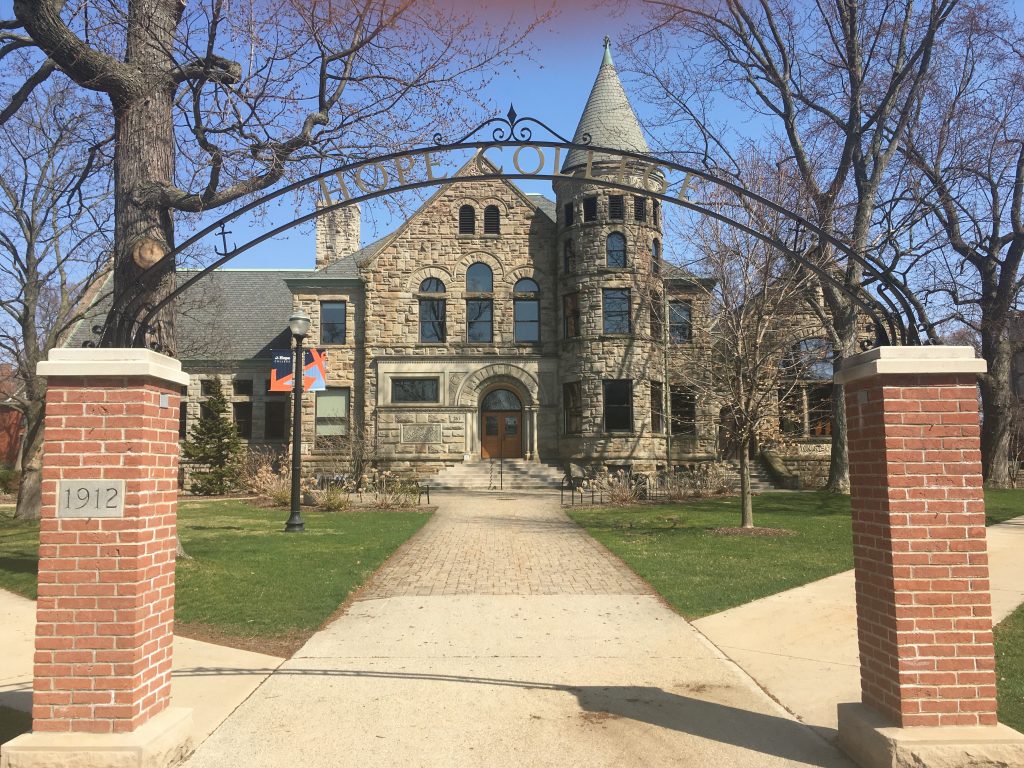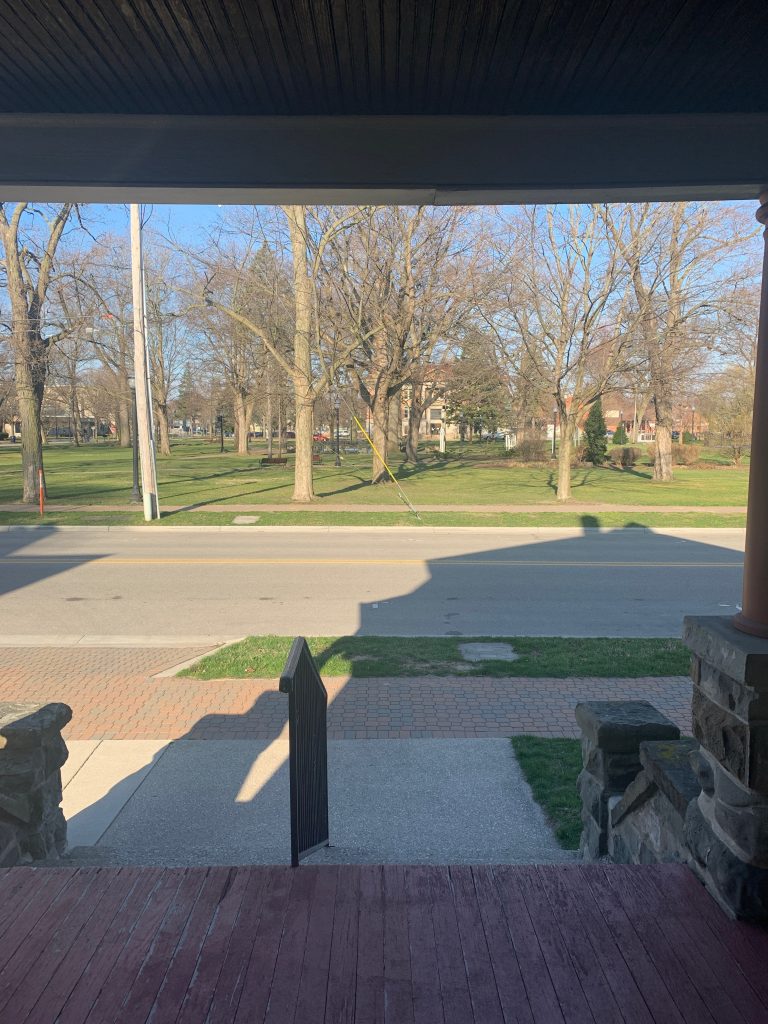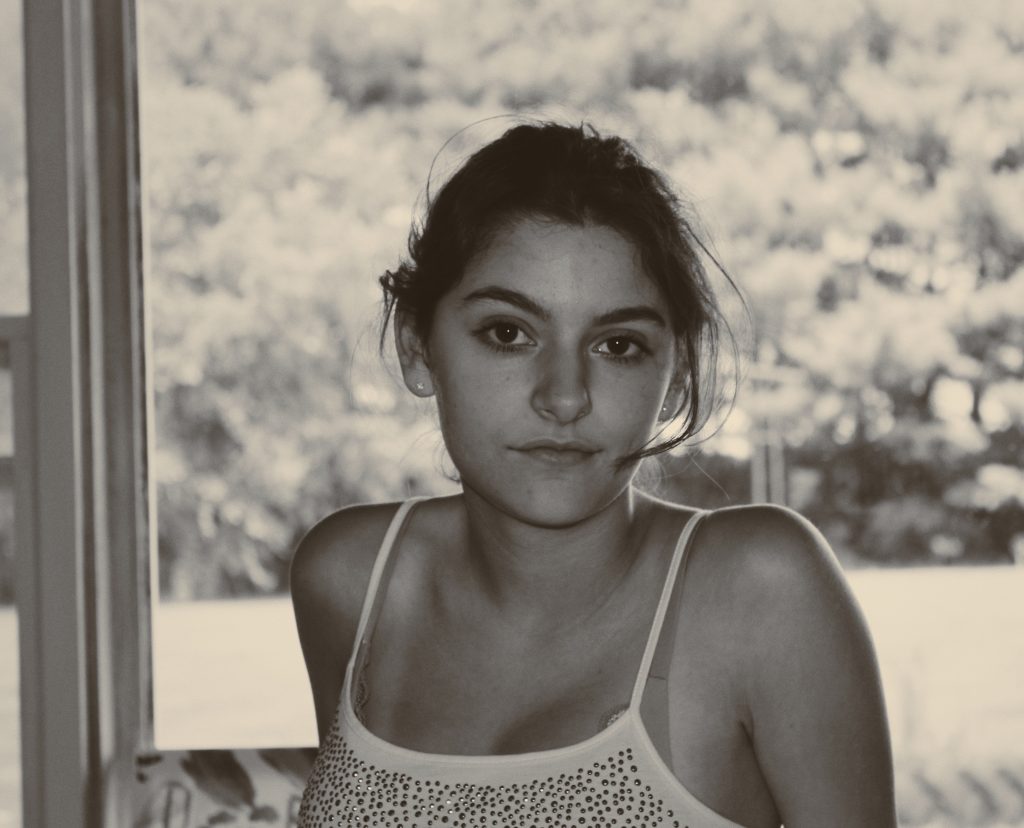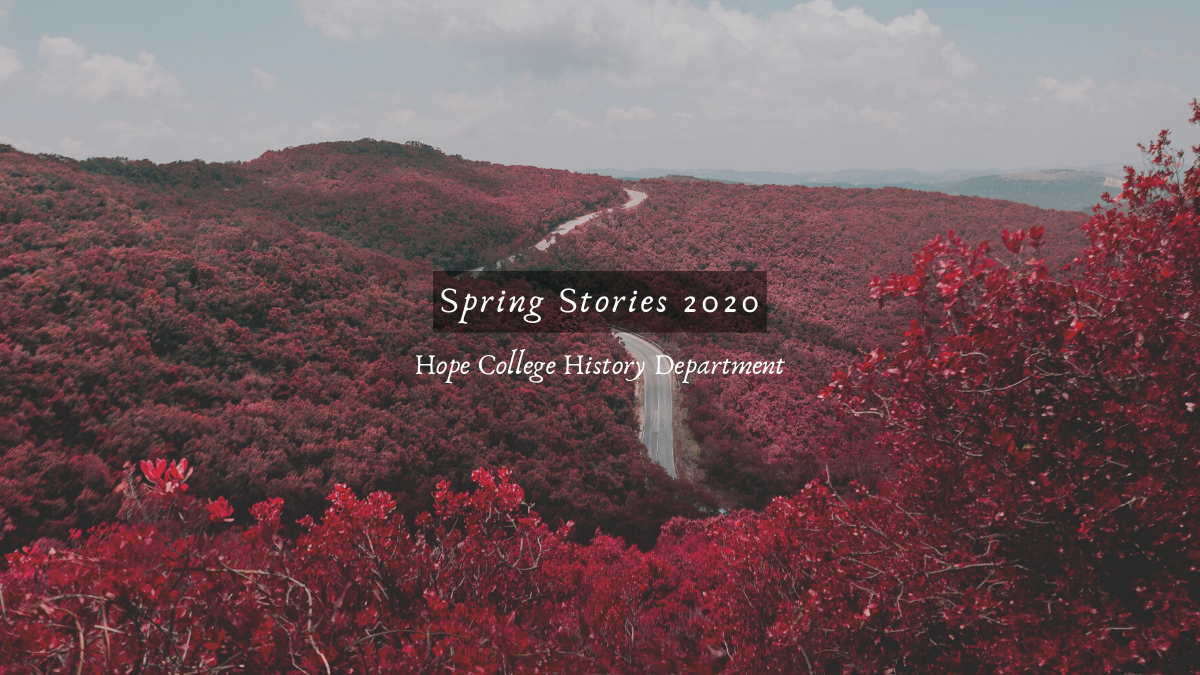The spring semester of 2020 has not worked out the way any of us expected it to, or hoped it would. Since Hope College announced, on March 10, that we would be moving to on-line education after Spring Break, we have all been on unfamiliar pathways. We are figuring out how to manage, one day at a time. As historians, we also know that we are living through historic changes. Future historians will study this period, and write about it, and help us understand it, with the benefit of perspective that we can’t have right now.
We can, though, think, talk, and write about our own experiences. In this blog series, “Spring Stories 2020,” the Hope College History Department has invited all of our students—majors, minors, and other students enrolled in our classes—to think about and document their experiences. We have invited students (and faculty!) to submit short essays (a paragraph or a few) or creative works about their experiences in the time of the coronavirus. We hope many—even all!—of our students will choose to participate. We’re on a winding and unfamiliar road, and we are not physically together. We can be a virtual community, though, and we hope that you will contribute your own ideas, and benefit from the contributions of others.
If you would like to contribute, please send your contribution to Professor Gibbs (gibbs@hope.edu). There’s no deadline. We’ll keep posting at least through the first week in May, and if the community finds this project helpful, we’ll keep going over the summer.
I hope you and those you love are all well. We miss you, and we’ll look forward to hearing from you.
-Dr. Gibbs

Aine O’Connor, Senior from South Bend, IN
“Almost two summers ago I wrote an article about the 1919-1920 Spanish flu in Holland for the Joint Archives. I remember being frustrated at being asked to write a whole article about an event that didn’t seem to have much of an impact on Holland. There’s no story here, I thought. And who will care?

Suddenly, lots of people care. Lots of people care because one hundred years ago Holland closed its churches, and its schools, and its restaurants. Hope College moved to remote learning, in this case through correspondence classes. One hundred years ago people shut down their lives for the summer, trying to stop the spread of disease. And in a wildly unexpected turn of events, one hundred years later people are doing the exact same thing.
A new generation will now stop taking things as simple as church bells for granted. Both our futures and our present-day lives have been upended, as friends move home and goodbyes that weren’t supposed to happen for another month… happen virtually? Or don’t happen at all? These times are strange and difficult and surreal and painful and isolating. But history has taught me that I cannot actually call them unprecedented, and there is an incredible comfort in that. Because when the flu in Holland finally started to go away a hundred years ago, they held a parade. Because of them, I have to hold out hope for future celebrations.”
Katy Smith, Freshman from Plymouth, IN
Quarantine Reality
by Katy Smith
Unprecedented. Crazy. Life-changing.
Words I hear on humankind’s tongue everyday.
Flatten the curve, they urge.
“This is history in the making,”
I try to remind myself, watching the world
from the window of my bedroom.
Talk of apocalypse and dystopia seem to become
reality. The grim, morbid brutality
of that sentence is not lost on me.
Some say because we’ve watched Mother Nature
suffer for so long, staying silent and turning
our eyes away, that now it is our turn.
Some believe this is proof that humankind
is the problem.
I refuse to be quite that dark.
I hear this was inevitable, it was going to happen
one day or another.
Classmate after classmate packs up their
swimsuits and cameras to escape on a lavish
impromptu vacation, while we are stuck in unplanned
staycation in our kitchens.
I seethe watching them, posing on the beach
only continuing to perpetrate harmful
stereotypes older generations pin on us.
Be responsible! I want to shout.
But all I do is log off for an hour.
“Don’t forget to turn in those essays due
this week,” I sort through emails.
A professor gives a heartfelt speech about mental
health, during this trying time. I tuck
those words into my back pocket when
trying to do work becomes pointless.

My phone dings.
A passive aggressive email from that same
professor about how we are not working
hard enough.
I bike down my country backroad
to escape. The truth of this monstrous matter
is we must give grace to our fellows. It is all we can give––
though if you can donate masks, please do.
Some of us are working from home
Some of us are mothering and teaching baby siblings
Some of us are unexpectedly unemployed
Some of us are sick and scared
Some of us are compromised, covering for shelter
Some of us are relapsing into another breakdown
Some of us are struggling to get out of bed
Humankind must look at the sun each day,
call a friend just to hear each other’s voices,
go for a walk and listen to the birds sing,
cry and yell and scream and punch a pillow, for God’s sake!
Make art and clean the house,
stick to a schedule or throw the schedule away for a week,
sing in the shower so loudly your throat aches,
do homework to the best of your ability and
recognize that your quality of work will not be the same
and that is okay.
Above all, humankind has to
hold tightly to one another, even if that means virtually;
Give hope like it’s candy on Easter;
Remember today and turn the phone off about tomorrow;
Please.
Reach out to your mother, your sister, your
childhood neighbor.
Remind one another that we are strong beyond belief.
Hope, grace, and love. It’s all we can give.
Keep sharing your stories with us and join us in this time of #KeepingHope.


